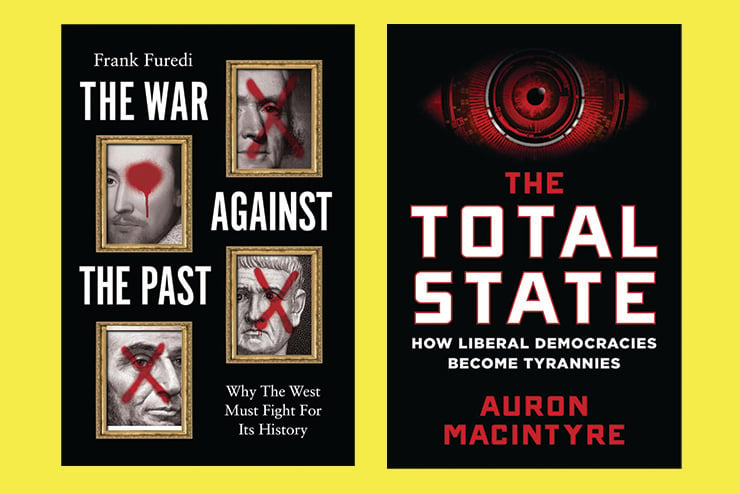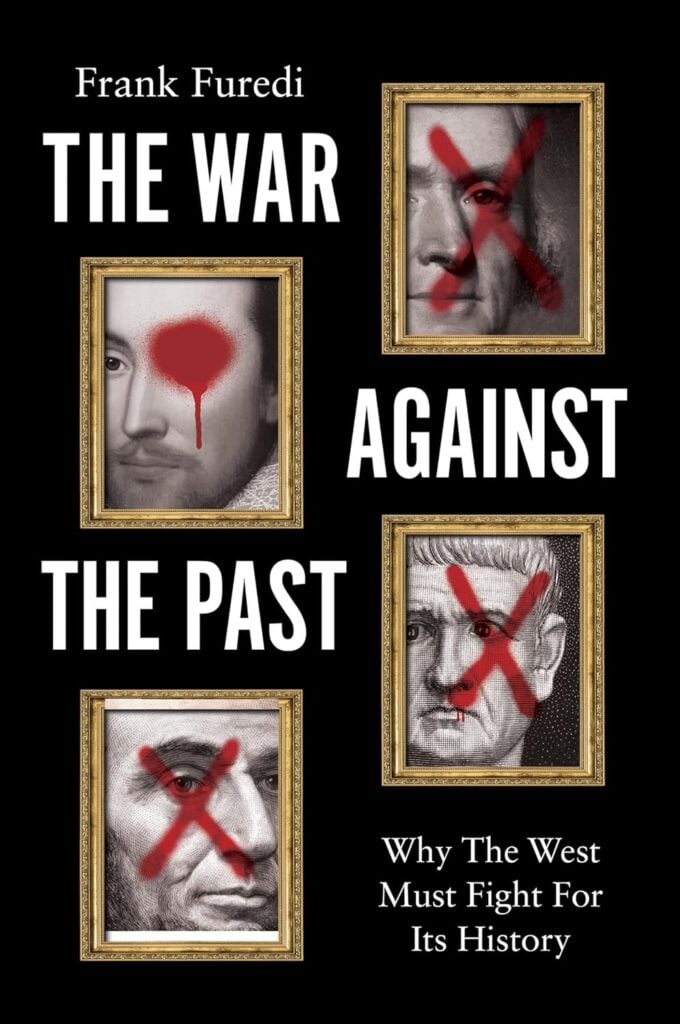The War Against the Past: Why the West Must Fight for Its History, by Frank Furedi (Polity; 272 pp., $29.95). Blessed with five years of hindsight, conservatives—and anyone else who cares about our historical patrimony—must study the causes of 2020’s cultural meltdown. Foaming-at-the-mouth iconoclasts tore down statues, burned books, and chanted threats against everything good, true, or beautiful.
Thankfully, we don’t have to look far for a postmortem. Frank Furedi, emeritus professor of sociology at the University of Kent, has provided one in this slim volume. He shows how “an undeclared War Against the Past,” decades in the making, turned social misfits into violent mobs that destroyed any cultural artifact running counter to their Year Zero ideology.
Furedi identifies history as the culture war’s most important battleground. Business, academia, and the media all sought to leave the past behind in their revolutionary spirit of “change management.” As these institutions eschewed the lessons of the past, culture warriors morphed into “grievance archeologists” determined to “detach society” from its historical grounding. They scrutinized the past, not as an exercise in critical reflection but to delegitimize it. Furedi rightly shames political leaders whose pusillanimous “defensive stance” failed to thwart these barbarians.
L. P. Hartley famously called the past a “foreign country” in his 1953 novel The Go-Between. To the left, the past is not just foreign—it is enemy territory. For evidence, see Western-phobic screeds like Rhodes Must Fall: The Struggle to Decolonise the Racist Heart of Empire or The New York Times’ 1619 Project, or any academic history text of the last 30 years. American progressives, “the most coherent and zealous opponents of tradition,” focused their sights on “the sphere of education and socialization” to convince the young to reject the knowledge of their elders. Now high school killjoys disown their grandparents for having laughed at Archie Bunker.
John Dewey’s insidious educational theories couldn’t compete with the radicals’ later war on language. Today’s language police have “no interest in conducting intergenerational conversation” when it only reinforces yesterday’s unforgivable horrors. Reality has left the building. “Social amnesia” fills the void. A society that can’t define “woman” speaks of “birthing people” and men who have periods.
Thanks to Furedi for including the University of New Hampshire’s inane “Bias-Free Language Guide.” It suggests prissies who care about such trivialities use “U.S. citizen” instead of the blood-and-soil-ish “American.” May I suggest Chronicles adopt the exact opposite as its usage policy?
(Mark G. Brennan)

The Total State: How Liberal Democracies Become Tyrannies, by Auron MacIntyre (Regnery; 208 pp., $32.99). For many people, the idea of a totalitarian state conjures up visions of Soviet-era thuggery or 24/7 Chinese surveillance. But there is another version, more insidious and powerful, according to Auron MacIntyre, a columnist who hosts a popular podcast on The Blaze. It involves stealthy indoctrination, dominance of institutions, and a steady takeover of cultural norms.
This form of control has become the essence of power in the past few decades, as far-left liberals have built “the Cathedral,” a concept MacIntyre borrows from Curtis Yarvin, meaning the decentralized U.S. consensus-manufacturing apparatus.
In this short but pithy study, MacIntyre dissects left-wing control of education, media, the courts, government, and corporate bureaucracies, all of which are underpinned by a pseudo-scientific approach drawn from Marxist methodology. “Experts” from Ivy League universities are trotted out to dismiss any dissent.
There is an intuitive authenticity to all this, although the real value of the book is that MacIntyre constructs a theoretical framework to explain the evolution and operation of the left’s mechanisms of control. He draws on a wide range of thinkers and writes in clear, accessible language.
Leftists always play the long game, and have managed to convince themselves and large parts of the populace that the bureaucratic rule of experts is the natural shape of society. But the fatal weakness of the total state is that its goals and methods do not align with the reality of human nature, writes MacIntyre. Eventually the tension shows through. The mechanisms of control are built on sand or, perhaps more correctly, scribbled on paper.
In the closing chapters of the book, MacIntyre explores possible ways forward, including reforms to the Constitution or the rise of a charismatic, conservative leader. These developments might useful even though he finally concludes that they do not really get to the heart of the issue. “The way through is not some glorious and sudden act of revolution but the acceptance of responsibility and implementation of careful discipline,” he writes.
MacIntyre does not deny the difficulty of “a million small acts of courage and heroism.” Nevertheless, a continued struggle is necessary if the country is to survive. America may no longer be the land of the free, but it may yet be the home of the brave.
(Derek Parker)


Leave a Reply